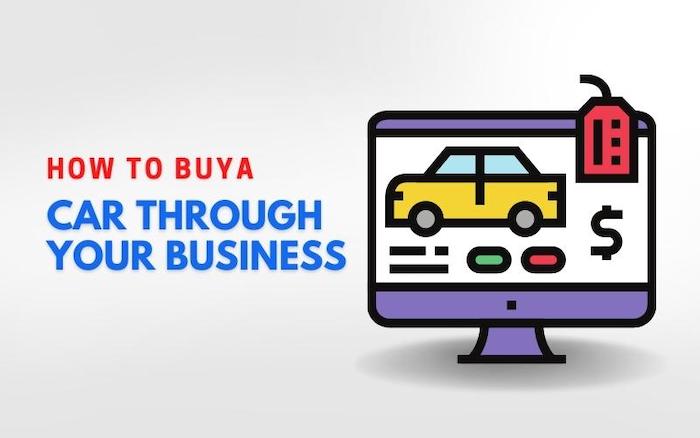Why Did My Credit Score Dropped 100 Points After Buying a Car?
Whether the first or the umpteenth time, buying a car is always exciting. For some reason, you cannot have enough of the smell of a new car. You’re excited to drive the latest model in your favorite car make. Even though you spend a fortune on the purchase, that’s soon forgotten. Unless you paid cash for the vehicle, you have to contend with regular monthly payments until you fully pay for the car.
Then it hits you that your credit score dropped 100 points after buying a car! Why would it happen like that? Your credit will likely decrease after taking out car financing because of its impact on three areas concerned with the rating. This article discusses the reasons for the drop in credit rating and other aspects of it. Keep reading for more information:
Hard Inquiry on Your Credit Reports
Before giving you a car loan, the lender evaluates your paying ability by pulling your credit report. With that, they trigger a hard inquiry, which credit reference bureaus categorize as “new credit.” In effect, it accounts for ten percent of your credit score from FICO.
Just one hard inquiry can drastically reduce your credit score. If your overall credit profile is good, its impact on your credit score is minimal. According to FICO, hard inquiries affect your credit score for the first 12 months but drop your credit report after two years.
If you made only one hard inquiry, it’s unlikely to have made a significant impact on your credit score. However, you possibly triggered multiple hard inquiries, impacting your credit report. Is it likely that you shopped around for the best interest rates by making applications with various lenders? If different lenders make hard inquiries within 14 to 45 days, it may count as one hard inquiry and have a minimal effect on your credit rating. However, if you spread out the hard inquiries, they will likely impact your credit score negatively.
Reduced Average Age of Loan Accounts
Part of the determinants of your credit score is the average age of your loan accounts. Longer average age means a higher credit score, while a lower average age causes a decrease in the credit score. Taking an auto loan will likely lower the average age of your loan accounts. The impact can be significant since the length of time you’ve had a credit history accounts for 15 percent of the FICO score.
Opening a new account can greatly impact your credit score if you have few loan accounts. That’s because the new loan leads to a significant reduction in the average age of your loan accounts, leading to a decreased credit limit.
The credit scoring by FICO put more weight on the substantially longer average age of loan accounts. However, a good credit score does not necessarily come due to long credit history. All that’s required is responsible management of your credit score as you wait for your credit history to age.
Increase in the Amounts Owed
With a new auto loan, your credit profile gains another account with a sizeable amount of debt. That impacts the amount owed, a category that accounts for 30 percent of the credit score from FICO.
The credit reference bureau determines your credit utilization ratio by comparing it with your credit limits using the amounts owed. Another important metric is the amount owed on all of your accounts, the number of accounts with running loan balances, and how much money you still owe on installment loans (such as an auto loan) compared to the initial amount.
Initially, an increase in the amounts owed leads to a drastic reduction in your credit score. It could be the reason why your credit score dropped 100 points after buying a car. However, as you keep making regular monthly installments, your credit score increases, helping you overcome the drop in credit. That means that you also resolve to make timely payments on all other areas in which you have taken out credit.
How Buying a Car Impacts Your Credit?
Buying a car can have a long-term impact on your credit – either increasing or reducing it. That depends on how reliably you repay the loan every month. The immediate effect of getting a car loan is a slight decrease in your credit score because of hard inquiries, an increase in loan amounts, and an increase in the number of loan accounts.
Your credit score will can improve if you receive your payments on time. That’s because credit reference bureaus consider payment history above all other factors when calculating your credit score. Therefore, making timely payments in full should gradually improve your credit score.
Taking a car loan leads to an improvement in your credit score when they see a mix of credit involving installment credit (like auto loans) and revolving credit (like credit cards), Lenders like it. Possibly you only have revolving credit accounts, like credit cards. If you add that to installment credit, like an auto loan, you can help improve your credit score.
Despite the positive effects of buying a car on your credit score, there are some adverse effects, including the following:
- Missing Monthly Payments: Missing a payment due date makes your car loan delinquent. The lender may give you a short grace period to help you resume the loan repayments. If another complete billing cycle passes without you having made a payment, the lender has no option but to report your delinquency to the credit bureaus, hurting your credit score.
- Defaulting on the Loan: Auto lenders can wait for 30 or 90 days before declaring your loan in default. Once your loan falls into default, the lender turns your account to debt collectors, who will reach out to you seeking payment. If you keep defaulting, the lender could repossess your car. Your credit score is negatively impacted by late payment, default, dealing with collectors, and vehicle repossession, staying on your credit report for a full seven years.
- Unaffordable Loan: If you can’t adequately make your payments, chances are you’re struggling with other bills. That could lead to late payments, which hurt your credit score. That calls for a comprehensive review of your budget before buying a vehicle. It would help if you were sure that you could make monthly payments and meet other costs of operating a vehicle.
How to Improve Your Credit Score After Buying a Car?
If your credit score drops because of buying a car, you should take steps to improve it. You could open loan accounts that file reports with credit bureaus, pay bills and other loans on time, and maintain low loan balances. Besides, you can enroll payments for revolving bills like video streaming, utilities, and cell phone with credit reference bureaus. Here is a detailed explanation of how you can improve your credit score immediately after buying a car.
1. Building a Credit File
If you want to rebuild your credit quickly, be sure to open new accounts that report to the major credit reference bureaus. Having more funds in your name is an excellent way of sending signals that you are a responsible borrower. You can use secured cards, credit-builder loans, or rewards credit cards to improve your credit score by a great deal.
Since credit bureaus calculate credit scores by considering your payment history, be sure to stay current on all the monthly repayments for all your accounts. Building a credit file can also help you increase the amount owed, positively impacting your credit score.
2. Making Timely Payments
Whether it is on your car loan or any other amounts you owe, making timely payments can lead to improvement in your credit score. Bureaus consider your history of on-time payments to determine your credit. Therefore, you must ensure that you do not miss credit card or loan payments for over 29 days. If you pay at least 30 days late, the lender will likely report you to the credit bureaus.
One way to avoid missing a payment is by setting automatic payments for recurrent bills and loans. That way, you can avoid missing payments. However, be careful not to trigger a bank overdraft. If you have trouble affording compensation for your bills, ask the credit card issuer for hardship options.
Suppose you have accounts that don’t usually appear on your credit reports, such as subscription services and gym membership, stay on top of things and avoid defaulting. Even though on-time payments might have no impact on your credit score, having your account sent to collections can lead to a drastic reduction in your credit score.
3. Catching Up on Past Due Accounts
Check any bills on which you have fallen behind and bring them current to improve your credit score. Usually, credit bureaus maintain late payments on credit reports for up to seven years. However, working to clear your accounts and make them current can improve your credit scores. Plus, it makes the lenders stop adding late payment reports to your credit history.
If you have a problem staying current with credit card debt, ask for help from a debt counselor to negotiate lower interest rates and payments. Alternatively, you can enroll in a debt management plan (DMP) to work on ways of making all your accounts with card issuers current.
4. Paying Down Revolving Account Balances
Likely, you’re not behind on your loans and bills. However, if your revolving credit accounts have a high balance, you could experience an increase in your credit utilization rate, hurting your scores. Revolving accounts may include lines of credit and credit cards and require you to maintain a low balance on them compared to your credit limit. That effectively improves your credit scores. If you want a high credit score, you must keep your credit utilization ratio to single digits.
5. Reducing the Frequency of Account Registration
It is excellent to open several accounts to improve your credit score. However, it would help if you didn’t overdo that since applying for too many funds could adversely affect your credit score. Each application you make leads to a hard inquiry, which could end up hurting your credit score to a large extent. Opening new accounts also reduces the average age of your accounts, hurting your credit score.
Even though the average age of accounts and hard inquiries are minor scoring factors, making too many applications won’t help your credit scores. However, if you decide to do some rate shopping, you can’t limit the number of times lenders report hard inquiries to credit bureaus. If your hard inquiries appear in an interval of 14 to 49 days, credit bureaus may ignore some of the reports.
The Bottom Line
Now you know why your credit score dropped 100 points after buying a car. The hard inquiry made by the lender can trigger a drop in your credit score. Also significant is a reduction in the age of your loan accounts and an increase in the loan amounts. However, this reduction in your credit score is temporary. With time and dedication, you can quickly improve your credit score. Be sure to increase your credit mix, make timely payments, catch up on due accounts, pay down balances on revolving and accounts, and reduce account registration frequency. Not too hard, isn’t it?
Frequently Asked Questions (FAQ)
How many points will my credit score decrease if I return a car?
Returning or having your car repossessed can reduce your credit score by 50 to 150 points. Besides, a repossession remains part of your credit history for up to 7 years. However, negotiating with lenders can lead to a favorable report.
Why would my credit score go down 100 points?
Your credit score can go down because of significant issues with your report. Likely, it’s a reporting error, a late payment, a recent car purchase, or a due outstanding collection. Probably your credit score dropped 100 points after buying a car.
Why did my credit score drop when I didn’t miss a payment?
Your credit score may drop for no apparent reason because of shortening your credit history. Since 10 percent of the FICO score depends on how long your accounts have lasted, that could be the reason for the reduced credit score.
Will a new auto loan raise my credit score?
Making auto loan on-time payments can lead to improvement in your credit score. An auto loan improves factors like credit mix, new credit, length of credit history, amounts owed, and improving your payment history.




